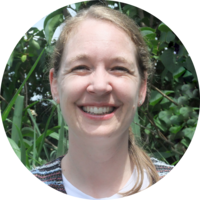When does human life begin from a biological point of view?

Yvonne is an educator, logotherapist, and a consultant at Profemina. With her professional expertise, she supports women in pregnancy conflicts sensitively and competently.
From a scientific perspective, human life begins at the moment of conception, when an egg cell is fertilized by a sperm. This moment marks the creation of a new human cell, the zygote, which is genetically unique. The zygote contains a complete DNA sequence that provides all the genetic information for an individual's development.
After fertilization, the zygote begins a process of cell division, initially dividing into two, then four, eight cells, and so on, while simultaneously moving through the fallopian tube to the uterus. About a week after fertilization, the cell cluster, now called a blastocyst, implants into the uterine lining.
Characteristics of a living thing, as defined scientifically, include organization, metabolism, homeostasis, growth, and response to stimuli. The fertilized egg exhibits all these characteristics:
Organization: The zygote has a highly organized structure containing all the genetic information necessary for its development and future functioning. It is cellularly organized, clearly identifying it as a living system.
Metabolism: Even at this early stage, the zygote begins metabolic activities by taking nutrients from its environment and consuming energy for growth and cell division.
Homeostasis: The zygote is capable of regulating an internal environment necessary for its development from within while dependent on remaining in the necessary environment, namely the uterus.
Growth: Immediately after fertilization, the human organism begins to divide and grow, continually developing, reaching first the embryonic stage and then the fetal stage.
Response to stimuli: While direct reactions to environmental stimuli are limited at this early stage, there are basic mechanisms through which the zygote can respond to changes in its environment, such as signals for implantation into the uterine lining.